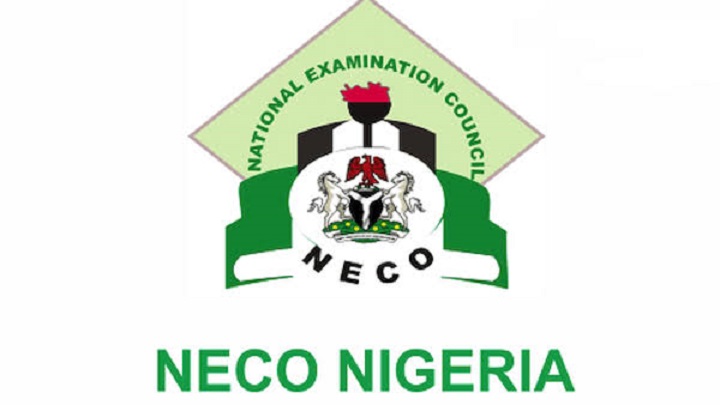NEWS
NCC Retracts Sanction Threat Over Starlink Price Hike
The Nigerian Communications Commission (NCC) has reversed its initial stance threatening sanctions against Starlink over a recent hike in subscription prices.
In a statement issued on Tuesday, NCC Manager of Media Relations, Kunle Azeez, clarified that the previous warning was released in error.
“Kindly note that this press statement on Starlink was issued in error,” Azeez said, adding that the statement has been “hereby WITHDRAWN.”
Related News: NCC To Sanction Starlink Over Unauthorized Tariff Hike
The retraction comes in the wake of Starlink’s announcement of a significant increase in its subscription fees.
Recall that the satellite internet provider raised its monthly subscription from N38,000 to N75,000 and increased the cost of its hardware kit from N440,000 to N590,000, affecting both new and existing customers.
In the initial statement, NCC’s Director of Public Affairs, Reuben Muoka, had expressed displeasure with Starlink’s unilateral decision to implement the price hike without the Commission’s approval.
Muoka noted that Starlink’s actions were not in line with the necessary regulatory processes.
“The decision by Starlink to unilaterally review its subscription packages upwards did not receive the approval of the Nigerian Communications Commission (NCC),” Muoka said.
“The Commission will, therefore, take appropriate enforcement measures against any action by a licensee that is capable of eroding the regulatory stability of the telecommunications industry.”
The NCC also criticized Starlink for preemptively announcing price changes while its request for price adjustment was still under review.
The Commission referenced possible violations of Sections 108 and 111 of the Nigerian Communications Act (NCA) 2003 and Starlink’s license conditions regarding tariffs.
Despite these earlier warnings, the NCC’s latest communication indicates that no immediate punitive measures will be taken against Starlink.
NEWS
Edo: Gov Okpebholo Launches Probe Into Obaseki Administration
Edo State Governor, Monday Okpebholo, has announced the establishment of a 14-member Assets Verification Committee to examine the financial records and asset management of the previous administration led by Godwin Obaseki.
In a statement released on Sunday by his Chief Press Secretary, Fred Itua, the governor revealed that the committee would be inaugurated on Tuesday, November 26, in Benin City.
RELATED NEWS: Gov Okpebhole Suspends Revenue Collection, Orders Arrest Of Violators
The panel is tasked with creating a detailed account of the state’s assets and liabilities to ensure transparency and accountability.
The committee will be chaired by Ernest Umakhihe, with Anslem Ojezua as Deputy Chairman and Frank Edebor as Secretary. Other members include Kassim Afegbua, Patrick Ikhariale, Taiwo Akerele, Patrick Idiake, Rasaq Bello-Osagie, Fredrick Unopah, Abdallah Eugenia, Patrick Obahiagbon, Kenny Okojie, Lyndsey Tes-Sorae, and Abass Braimoh.
Explaining the rationale behind the committee, Mr. Itua stated, “Despite repeated calls for a more holistic database of the assets and liabilities of the previous administration, the Godwin Obaseki-led government presented a scanty and limited report.”
He added that the initiative reflects the governor’s commitment to his campaign promises.
“In line with the governor’s campaign promise to ensure probity, accountability, and transparency in government, and to deepen the governance process, a committee made up of respected sons and daughters from Edo State has to be constituted,” the statement noted.
The committee’s work is expected to pave the way for a more accountable and developmental governance structure in Edo State.
NEWS
NECO Expands Global Footprints, Accredits Niger, Equatorial Guinea Schools

In a bid to increase its global presence, the National Examination Council (NECO) has accredited more foreign schools.
This was contained in a statement issued under the signature of its Acting Director of Public Relations, Azeez Sanni, on Saturday.
He revealed that the accredited schools are in Niger Republic and Equatorial Guinea.
Recall that last year, the examination body accredited some centres in Niger Republic to enable Nigerian students in the Francophone country to sit for the examinations.
ALSO READ: Davido Is Our Son, Our Pride – Gov Adeleke
The statement read, “Determined to broaden its horizon and expand its global presence, the National Examinations Council has accredited more foreign schools to write the Senior School Certificate Examination and the Basic Education Certificate Examination.
“The newly accredited schools, in addition to the existing ones, are in Niger Republic and Equatorial Guinea.
“NECO accreditation team visited the Schools to assess their readiness to write the SSCE and BECE.
“The accreditation 5eam inspected classrooms, laboratories, libraries, computer laboratories, workshops, examination halls and sports facilities to determine their adequacy and suitability for NECO examinations.
“After a thorough evaluation and comprehensive assessment, the schools were granted full SSCE and full BECE accreditation status.”
NEWS
Ex-UN Envoy Warns Of New Cold War Threatening Africa’s Unity
Renowned diplomat and former United Nations Under-Secretary-General, Ibrahim Gambari, has raised alarms over the looming threat of a new Cold War that could fracture Africa along geopolitical lines.
Speaking at the Realnews Magazine Annual Lecture in Lagos, Gambari urged African leaders to urgently reposition the continent amidst intensifying global power struggles.
The lecture, themed “Africa in World Shifting Geopolitics: Matters Arising on Demography, Technology, Artificial Intelligence, Natural Resources,” explored Africa’s strategic role in a rapidly evolving international system.
READ ALSO: I Make $40,000 Montly With Content Creation Says Blessing CEO
Gambari cautioned that without proactive measures, Africa risks being sidelined or exploited in the unfolding global order.
Africa: Battleground in a New Power Struggle
Describing the increasing militarisation by major global powers, Gambari painted a picture of fierce competition for control over Africa’s resources and strategic locations.
He noted that the proliferation of foreign military bases across the continent is evidence of this struggle.
“A relentless militarisation is taking place across the world—from the Atlantic to the Pacific, the Arctic to the Antarctic,” Gambari said. “Rich in natural resources and strategically located, Africa has become a key battleground in this global power struggle.”
He cited Djibouti as a stark example of Africa’s strategic importance.
The country, located near the Red Sea, hosts both the United States’ only permanent base on the continent, Camp Lemonnier, and China’s first overseas military installation.
Gambari warned that the presence of such bases represents more than security interests, suggesting echoes of colonial ambitions aimed at controlling Africa’s wealth and arable land.
“The seaboard of Africa is already dotted with military bases operated by various powers,” Gambari observed. “The continent is once again at the center of a scramble as the new Cold War intensifies.”
The Return of Zero-Sum Geopolitics
Gambari also highlighted the resurgence of zero-sum geopolitics, where nations compete for influence at the expense of others.
He noted that China and Russia are emerging as dominant players in Africa, with China leveraging infrastructure projects and debt relief, while Russia offers weapons and military support.
“These actions signal a destabilising competition for influence,” Gambari said, adding that traditional powers like France, Germany, India, and the UK are also expanding their presence on the continent.
“The age of zero-sum geopolitics is back, with all its destabilising consequences for African countries,” he said.
Unlocking Africa’s Potential Amid Challenges
Despite the geopolitical rivalry, Gambari emphasized that Africa’s youthful and growing population provides a significant opportunity for the continent to assert its influence globally.
He urged African leaders to invest in education, innovation, and youth-driven initiatives to harness this demographic dividend.
“With well over a billion people and an overwhelmingly youthful population, the African continent is destined for a significant role in the demographics of the world,” Gambari said.
“But we must build national and regional strategies to leverage the energy, innovative acumen, and futuristic vision of our young people.”
Gambari warned that without these strategies, Africa’s demographic advantage could remain underutilised.
He also called for the continent to be proactive in shaping the rules of the emerging global order, rather than being passive participants.
“We cannot afford to sit on the sidelines while the rules of a new world order are being written,” Gambari said.
“We must insist on being joint rule-makers, ensuring the new global order reflects our values and aspirations for a fairer, more inclusive, and equitable world.”
A Call to Action
Gambari concluded with a rallying cry for African leaders to harness the continent’s abundant resources and human capital.
He said Africa must use its demographic and strategic advantages to achieve the structural transformation that has long eluded it.
He said, “We must be ready to harness our abundant human and natural resources to leapfrog our development. Although the outcomes of ongoing geopolitical shifts are uncertain, they need not come at the expense of our people and our continent.”
Gambari stressed the need for bold leadership, warning that Africa cannot afford complacency. “Our youth bulge must become an advantage that places us at the forefront of the digital economy and its innovations,” he said.














